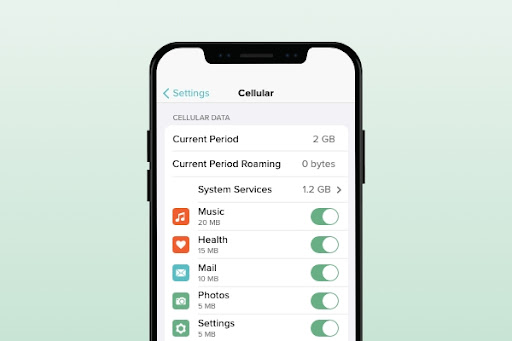Today’s fast-paced digital world, choosing the right mobile data plan has turned into an essential task for a multitude of consumers. With a variety of options present, navigating throughout the countless of choices can appear daunting. Whether you are an occasional user reading emails and browsing through social media, or a frequent user watching videos and playing online games, understanding what each plan offers is key to finding the optimal fit for your requirements.
As you start on this process to select a mobile data plan, it's crucial to weigh several critical factors. From understanding your data usage habits to considering your budget and the coverage offered by multiple carriers, making an wise decision can save you money and ensure that you are connected when it is essential most. Let's explore into the essentials that will guide simplify mobile data plans and direct you towards the optimal option for your way of life.
Comprehending Data Limits
When picking a mobile data plan, understanding data limits is essential. Data limits indicate the limitless amount of data you can utilize in a billing cycle without attracting additional charges or throttling. Most plans have a flexible limit, where after crossing a certain threshold, your speeds may be lowered, but you can continue to access data. Familiarizing yourself with these limits helps to prevent unexpected additional fees.
Different users have varying data needs, so it’s essential to assess your data consumption habits. If you stream videos often, play online games, or obtain large files, you will need a plan with a greater data allowance. Conversely, if you primarily use your phone for surfing the internet and social media, a smaller limit may satisfy. Understanding your usage pattern allows you to select a plan that fits your way of life without exceeding your budget.
Additionally, consider whether the plan provides rollover data or family sharing options. Rollover data permits you to carry over unused data into the next month, providing more flexibility. Family plans can reduce money if several users are involved, ensuring everyone has access to ample data while possibly reducing overall costs. Knowing these details can lead you toward choosing the best mobile data plan.
Types of Mobile Data Plans
As you consider an mobile data plan, it's important to understand the various types available. Pre-paid plans are often popular for their convenience and lack of long-term obligations. Users prepay for a set amount of data, which allows you to control your spending with ease. This type works well for those who want avoid unexpected charges and prefer the option to switch providers or providers without fees.
Post-paid plans, on the other hand, typically require you to sign a service agreement for a fixed period, often 12 to 24 months. These packages usually come with higher data allowances and extra features, such as family sharing options and international roaming. They can offer more benefit for frequent data users who are comfortable making a long-term commitment to a particular carrier.
Another option is unlimited data plans , which let you to use data worry-free of overage fees. While these plans may come with a increased monthly cost, they often have policies such as deprioritization during peak times once a specific data threshold is reached. If you frequently stream videos, play online games, or depend on data for work, an unlimited plan might be the best fit for your needs, providing peace of mind as you use your device throughout the month.
Tips for Choosing the Right Plan
When you choosing a mobile data plan, begin by analyzing your usage needs. Reflect on how much data you generally consume each month. If you mostly browse the web and check emails, a plan with lower data limits may suffice. On the other hand, if you regularly stream videos or use data-heavy apps, opt for a plan with increased data allowances to prevent overage fees and throttling.
Then, compare the different options available from different carriers. Consider more than the price and assess factors such as data speed, coverage area, and customer service ratings. Some carriers provide promotional deals or discounts for family or group plans, which can deliver better value. Take the time to read reviews and experiences from other users in your area to confirm you select a carrier that meets your performance expectations.

Ultimately, don't neglect to factor in future changes to your data needs. If you expect changes in your lifestyle, like starting a new job with a longer commute or developing a new hobby that requires more online activity, it may be wise to choose a plan that provides flexibility. Many providers have options to upgrade or downgrade your plan easily, so look for one that allows you adjust your data limit without hassle.
